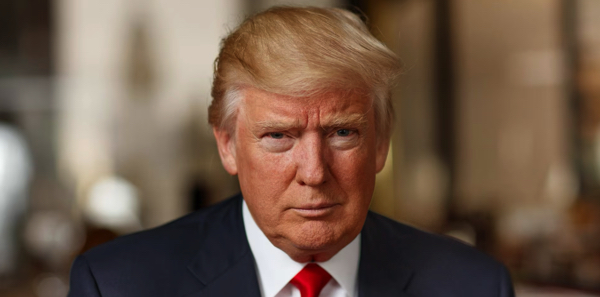
New Golden Age? Trump’s Qatar pact drives $1.2T in deals, centering U.S. interests
Friday, May 16, 2025 by Willow Tohi
http://www.progress.news/2025-05-16-trumps-qatar-pact-drives-trillion-in-deals.html

- The U.S. and Qatar finalized deals worth at least $1.2 trillion, including a record $96 billion Boeing aircraft order, defense contracts and energy investments, aimed at boosting U.S. jobs and national security.
- Qatar committed to $3 billion in defense purchases (counter-drone systems and advanced drones) and a $38 billion pledge to enhance Al Udeid Air Base, strengthening U.S.-Qatar military ties and supporting American defense jobs.
- Qatar Airways’ order for up to 210 Boeing jets (787s and 777Xs) will sustain over 1 million U.S. jobs, marking a major win for U.S. manufacturing amid Boeing’s recent challenges.
- The agreement builds on Qatar’s long-term U.S. partnerships, including $18 billion in energy projects and $1 billion for quantum computing research, aligning with its National Vision 2030 and U.S. innovation goals.
- Qatar’s proposal to loan the U.S. a $400 million Boeing 747-8 as a temporary Air Force One sparked debate over legal and security concerns, though supporters framed it as a diplomatic goodwill gesture.
President Donald J. Trump’s Middle East diplomacy yielded a landmark economic agreement with Qatar on Wednesday, sealing commitments worth at least $1.2 trillion, according to The White House. The deals, framed as a triumph for American manufacturing and national security, include a record-breaking aircraft order from Boeing, advanced defense contracts and investments in energy and emerging technologies. The announcement underscores Trump’s focus on leveraging U.S.-Gulf partnerships to spur domestic job creation and counter geopolitical rivals.
Defense contracts shore up regional security and U.S. workforce
The agreements included major defense purchases designed to strengthen U.S.-Qatar security ties while supporting American jobs. Raytheon, a division of Raytheon Technologies (RTX), clinched a $1 billion deal to supply counter-drone systems, marking Qatar as the first international customer for its Fixed Site–Low, Slow, Small Unmanned Aircraft System Integrated Defeat System (FS?LIDS). Separately, General Atomics scored a $2 billion contract to sell Qatar MQ-9B remotely piloted aircraft, advanced drones used for surveillance and combat missions.
The deals also included a U.S.-Qatar statement of intent to allocate $38 billion toward bolstering Al Udeid Air Base—a key hub for U.S. military operations—and enhancing air and maritime defense capabilities. White House officials emphasized the strategic impact of such investments. “These agreements protect U.S. interests abroad while igniting jobs at home,” a senior administration official stated anonymously. Defense analysts noted the purchases align with Trump’s goal of offloading high-tech military systems to Gulf allies to reduce U.S. troop reliance in volatile regions.
Boeing’s $96 billion triumph symbolizes manufacturing’s revival
The crown jewel of the day was Qatar Airways’ agreement to purchase up to 210 Boeing 787 Dreamliners and 777X aircraft, totaling $96 billion. The order, powered by GE Aerospace engines, represents Boeing’s largest-ever sales of widebody jets and its biggest 787 order to date. The White House highlighted that production and delivery would sustain 154,000 U.S. jobs annually, tallying over 1 million jobs over the contract’s lifespan.
This arrangement follows Boeing’s struggles with the delayed presidential aircraft upgrade, a project now overshadowed by Qatar’s offer to loan the U.S. a $400 million Boeing 747-8 as temporary Air Force One. While the deal faces scrutiny over potential legal and security issues, a White House spokesperson said it underwent “rigorous oversight to ensure compliance with federal guidelines.” Critics, including Democratic adversaries, argue the jet’s acceptance could compromise national security or imply undue foreign influence.
Qatar’s longstanding investments laid the foundation
The pact built on decades of U.S.-Qatar economic synergy. Since 2019, QatarEnergy has committed $18 billion to U.S. energy infrastructure, including a $10 billion collaboration with ExxonMobil at the Golden Pass LNG Terminal in Texas. In 2024, Qatar held a $2 billion bilateral trade surplus with the U.S., bolstered by exports in aviation and oilfield services.
The Qatari National Vision 2030, which prioritizes technological advancement, further dovetails with American interests. AQuantinuum-Al Rabban Capital joint venture exemplifies this trend: Qatar pledged $1 billion for quantum computing research in the U.S. “Qatar’s investments aren’t random—they’re strategic plays to partner with the world’s most innovative economy,” said former Pentagon advisor Matthew Dickinson.
Gift or gambit? Qatar’s jumbo jet offer sparks debate
The specter of Qatar’s Air Force One offer lingered in background discussions, even as officials emphasized the economic deal proper. Sen. Kevin Cramer (R-N.D.) defended the jet as “more generous than the Statue of Liberty,” framing it as a diplomatic gesture worthy of acceptance. “Why turn down a golden opportunity?” he told Reuters. Yet White House lawyers continue evaluating the arrangement’s legal validity, particularly regarding foreign government gifting policies.
A strategic gamble for American renewal
The deal reflects Trump’s self-styled diplomatic style: no single issue too big, from fighter jets to quantum tech. While critics question optics and oversight, supporters cite tangible gains: 1 million U.S. jobs, energy-sector resilience and fortified Gulf alliances. As China and Russia seek their own Middle East inroads, the president’s vision of a “Golden Age” hinges on turning these commitments into durable partnerships. “This isn’t just commerce—it’s about ensuring American leadership endures,” Trump declared at Wednesday’s signing. The verdict, for now, remains in the balance.
Sources for this article include:
Tagged Under: Tags: big government, defense contracts, economic agreement, energy, government debt, jobs, money supply, national security, pensions, progress, Qatar, risk
RECENT ARTICLES


“Food is Medicine Act” defies Big Pharma model and allows doctors to PRESCRIBE FOOD as medicine
By S.D. Wells

Homicide rates in sanctuary city Denver drop by 58%, thanks to ICE crime crackdown
By Ramon Tomey

Federal judge upholds IRS-DHS agreement to share migrant data with ICE
By Laura Harris

Michigan Rep. Thanedar pushes for Trump impeachment vote, sparking fury among his Democrat colleagues – but later backs down
By Ramon Tomey
COPYRIGHT © 2017 PROGRESS NEWS


